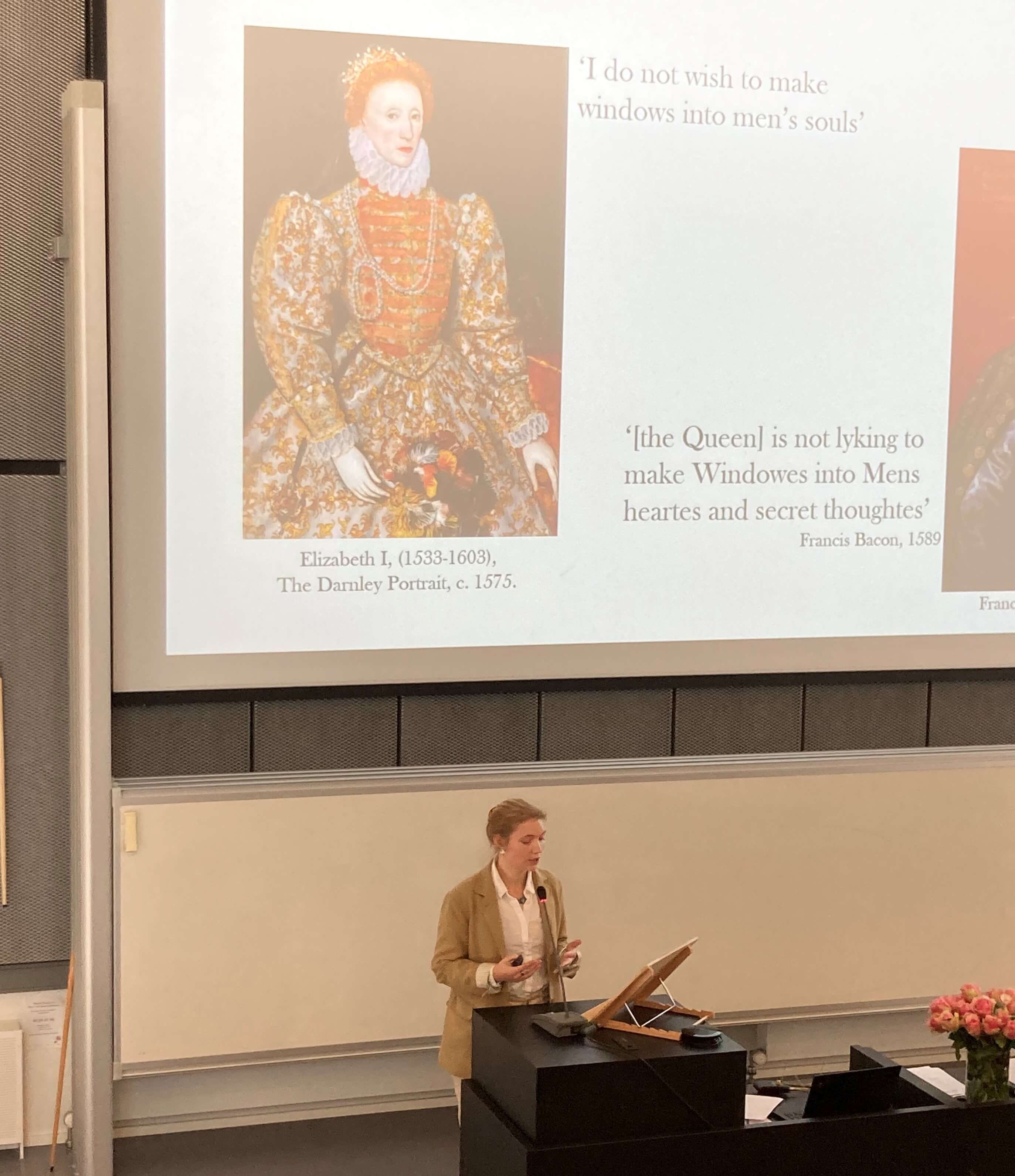PRIVACY-PhD, Anni H. Henriksen in new job at Karberghus Ejendomme A/S
From studying the private mind to disseminating the history of Copenhagen Architecture
On 10 October, our very first PRIVACY-PhD, Anni Haahr Henriksen, defended her PhD thesis The Private Mind in Elizabethan England. Representations of the Mind in Literary, Political, Religious, and Legal Discourse. She defended with confidence and intellectual acumen, and we are all very proud of her.
About the thesis, the assessment committee, consisting of professor Alexandra Walsham, University of Cambridge, professor Brian Cummings, University of York, and associate professor Florian Wöller, University of Copenhagen, states:
“The thesis is a pleasure to read and is thought-provoking on almost every page. This extremely ambitious and wide-ranging thesis seeks to explore the mind as a “private” space in Elizabethan England. Drawing inspiration from recent work in Privacy Studies, and especially the work of Mette Birkedal Bruun, it approaches the private as both a quality and a threat, as both suspect and desirable. It traces how this uneasy duality worked in four principal settings – the literary stage, the university, the church, and the law courts. Its aim is to demonstrate how the notion of the mind as an inward and private sphere evolved against the backdrop of the religio-political developments and confessional conflicts that marked the post-Reformation era. It explores texts and debates that illuminate two contrary tendencies in a context in which the relationship between the state, self, and God was reconstituted and repeatedly contested: (1) the idea that the mind was a locus of suspicion and therefore of justifiable coercion and inquisition by the state; and (2) the idea that the mind was a site over which an individual had autonomy and control and into which they could legitimately retreat to escape from external intervention.”
In the time between handing in her thesis in the spring and defending it in October, Anni landed a job as a historian at the real estate company Karberghus Ejendomme A/S. We have interviewed Anni about her new job.

Can you explain what Karberghus is and what they do?
“Karberghus Ejendomme A/S is a real estate company. As a company, it buys and maintains buildings in order to rent them out to companies in need of office space, to small entrepreneurs, shop keepers, and for private housing. What makes Karberghus stand out is its unique portfolio of houses. Karberghus is specialised in historical buildings and architectural masterpieces. Moreover, Karberghus is devoted to restoring these historical buildings in a manner that honours the unique craftsmanship and cultural heritage of the houses.”
What is your position and main tasks at Karberghus?
“Well, I am the 'house historian’ at Karberghus. My position says a lot about how very different Karberghus is from other real estate companies. I do not think there are very many private companies that care so much for the cultural history of their enterprise to hire on a full time historian, but this is where Karberghus is different. They know that the historical weight of their portfolio is an asset and indeed an enormous resource that makes their particular buildings stand out. There is in this sense a combination of economical interest and public outreach in their investment. My job is to communicate the history of three of Karberghus’ houses: Langelinieskuret, Dehns Palæ, and Zieglers Gaard. The books I write are aimed towards the current and future residents of these houses, but they are also aimed towards anyone interested in the history of Copenhagen, in architecture, and in cultural history. Apart from the three books, out of which the first one on Langelinieskuret is soon to be published, I am also in charge of the company’s Instagram account from which I communicate my research and the day-to-day work of the architects and craftsmen tending to the houses at Karberghus.”
How can you use your experience from Centre for Privacy Studies in your new job?
“Working at the Centre for Privacy Studies has opened my eyes to the richness of conducting history across the breadth of academic disciplines and chronology. The houses I write about at Karberghus are not from the same period as is studies at the centre, but span from the early 18th century to the final years of the 19th century. Moreover, these are houses whose final chapters have not yet been told. Indeed, many of them are still in their youth, despite their old age. In this sense, I am also engaging in the contemporary history of the houses. One of the most rewarding things about working at the Centre for Privacy Studies has been the engagement with scholars of architectural history and this particular aspect of the Centre’s DNA has been hugely beneficial for me in my current position at Karberghus. When writing the history of a house, you engage in the architectural aspects of its construction, but also in the history of its owners, in the Zeitgeist of the periods it has lived through, and how these currents of ideas in society, be they political or religious, have affected the use, state, and representation of the house.”
What do you wish to gain and contribute with through your affiliation with Centre for Privacy Studies in the future?
“It is very important for me to maintain a good connection to the Centre for Privacy Studies, because I want to stay in touch with the PRIVACY cohort - a wonderful group of colleagues that are incredibly dear to me - and because PRIVACY is one of the most exciting things happening within the humanities at the University of Copenhagen right now! Finally, there may be some common ground between the Copenhagen case at the Centre and my work on Dehns Palæ and Zieglers Gaard. It is certainly something to explore.”
We are thrilled to have Anni as an affiliated scholar and are looking forward to follow her career and collaborating with her in the future.
